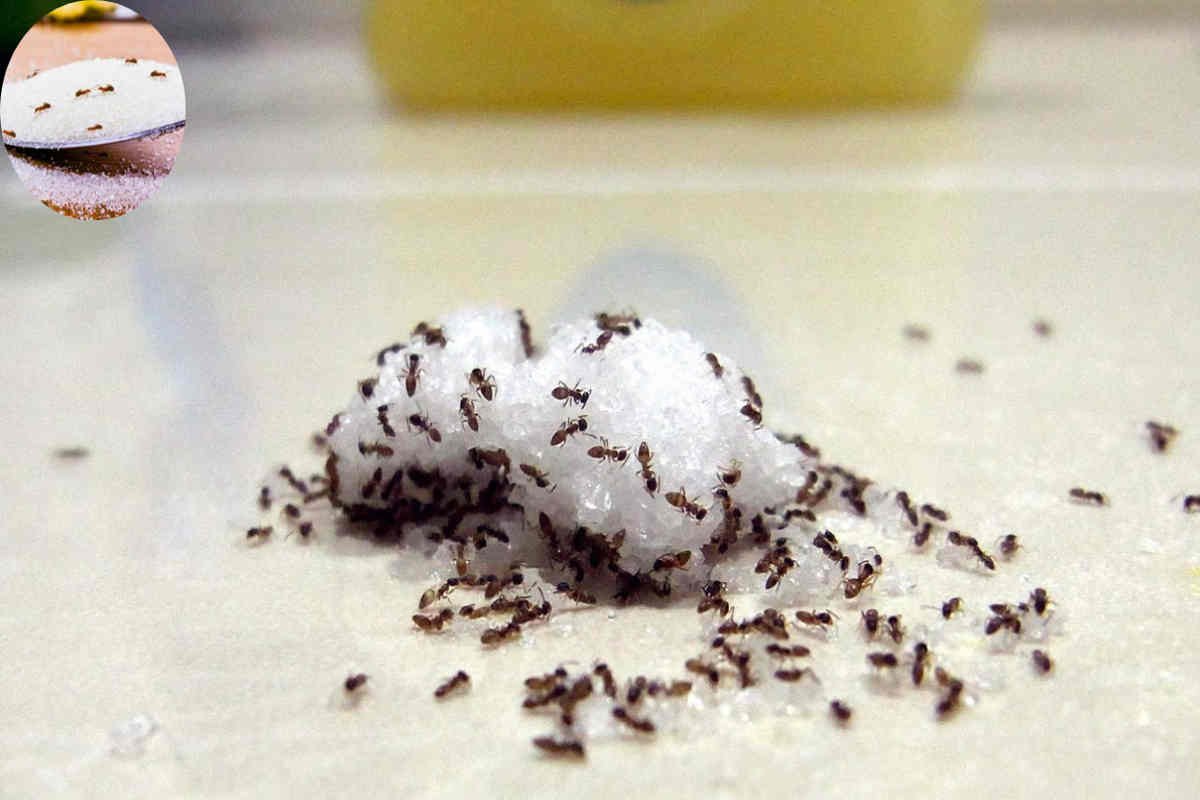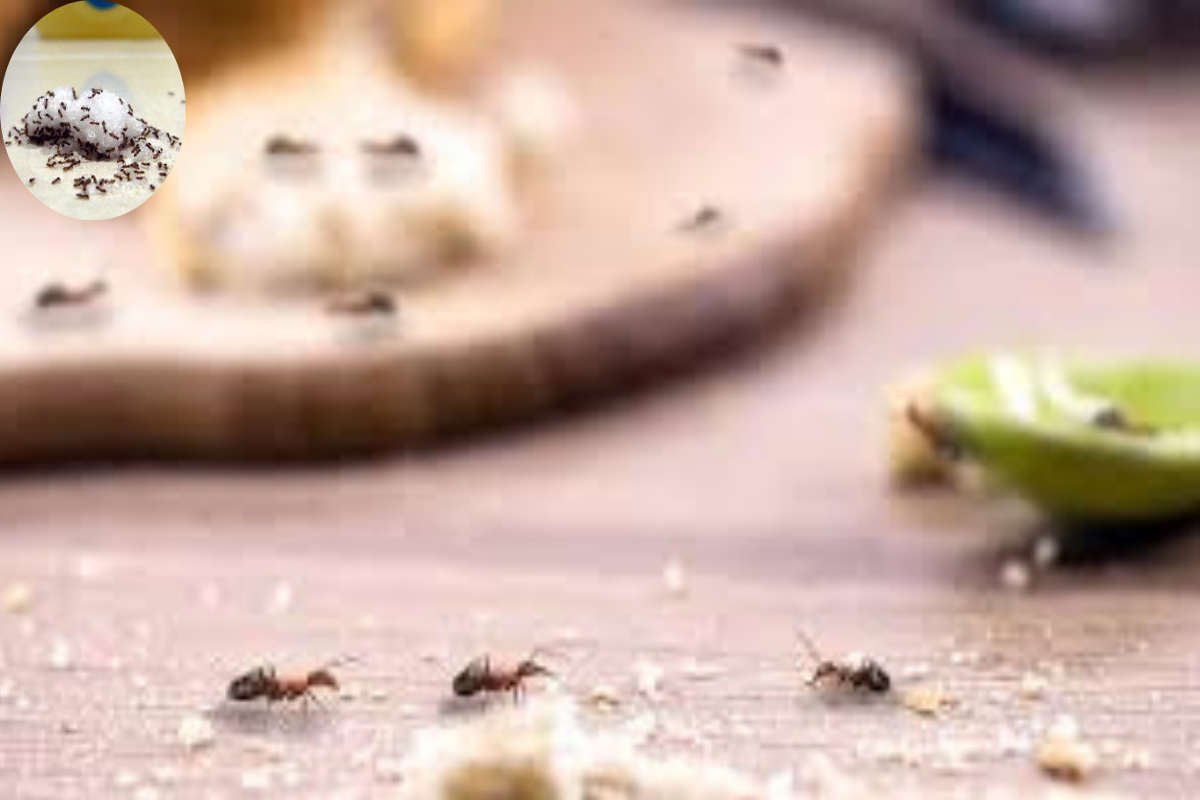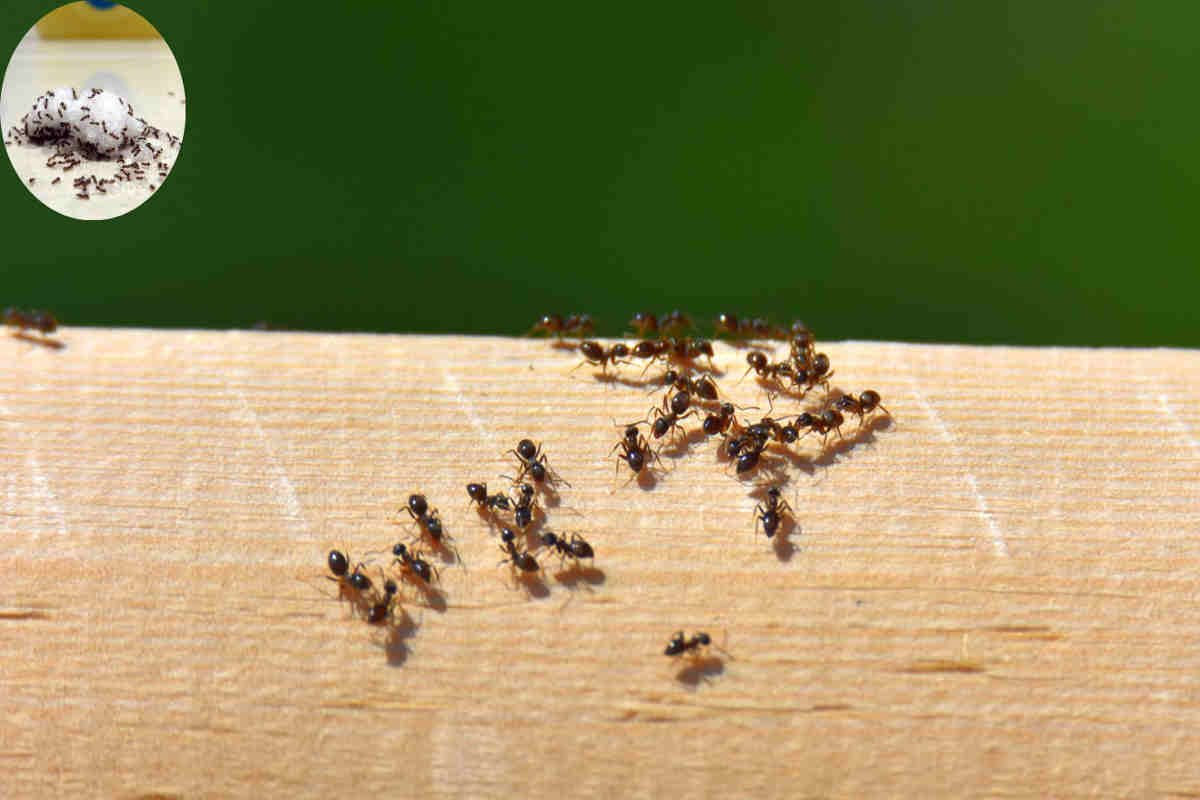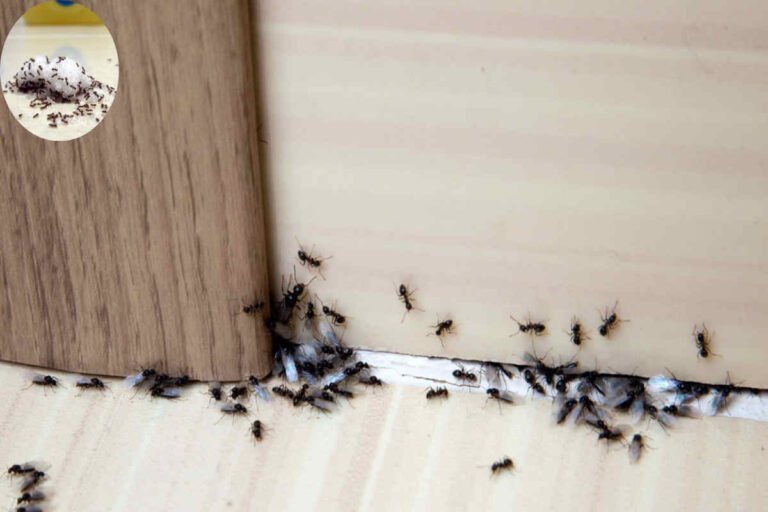Dealing with ants in the home, especially in the kitchen, can be a frustrating experience. These tiny invaders often march in uninvited, seeking out food sources and disrupting our daily lives. With their ability to form colonies and communicate effectively, they can become a significant nuisance in no time.
Natural remedies are becoming increasingly popular among homeowners looking for effective and non-toxic solutions. One such remedy that has gained attention is salt.
Understanding Ant Infestations in the Home Kitchen
Common Reasons Ants Invade Kitchens
Ants are typically attracted to kitchens due to the abundance of food and water. Here are some common reasons why these pests invade:
- Food Sources: Leftover food, spills, and crumbs create an ideal feeding ground.
- Water Sources: Ants are also drawn to moisture, and they are found in sinks, dishwashers, and even pet bowls.
- Shelter: Kitchens provide warmth and shelter, especially during colder months.
Types of Ants Typically Found in Homes
Several ant species commonly invade homes, including:
- Carpenter Ants: Known for nesting in wood, they can cause structural damage.
- Sugar Ants: Attracted to sugary substances, they are often found near food.
- Pavement Ants: These ants typically nest in cracks in pavement, but may enter homes searching for food.
Risks and Nuisances Associated with Kitchen Ants
Beyond being a nuisance, ants can pose several risks:
- Contamination: They can contaminate food and surfaces with bacteria.
- Structural Damage: Some species, like carpenter ants, can damage wooden structures.
- Disruption: Ants can invade in large numbers, creating chaos in the kitchen.
Why Choose Salt as a Solution?
Benefits of Using Salt
Salt is a natural, affordable, and accessible remedy for ant problems. Here are some benefits:
You may also read (flooring for your home).
- Non-Toxic: Unlike chemical ant killers, salt poses minimal risk to humans and pets.
- Cost-Effective: Salt is inexpensive and readily available in most households.
- Easy to Use: Applying salt requires minimal effort and supplies.
Comparison with Chemical Ant Killers
While chemical ant killers can be effective, they often come with risks, such as:
- Toxicity: Chemicals can be harmful to pets and children.
- Environmental Impact: Chemical residues can contaminate soil and water.
- Resistance: Ants can develop resistance to chemicals over time.
Environmental and Safety Considerations
Using salt aligns with a growing trend towards eco-friendly pest control. It reduces the risk of harmful side effects and contributes to a safer home environment.
How Does Salt Affect Ants?
Scientific Explanation: Osmosis and Dehydration
Salt works on a cellular level through osmosis. When ants come into contact with salt, it draws moisture from their bodies, leading to dehydration. This process effectively weakens and kills the ants.
How Salt Disrupts Ant Exoskeletons and Pheromone Trails
Ants communicate using pheromone trails. Salt can disrupt these trails, making it difficult for ants to navigate and communicate effectively. Also, salt can damage their exoskeletons, further impairing their survival ability.
Limitations
It’s important to note that while salt can kill individual ants, it may not eliminate the entire colony or the queen ant. For larger infestations, salt is best used in conjunction with other methods.
Step-by-Step Guide: How to Get Rid of Ants in the Home Kitchen with Salt
Identify Ant Trails and Entry Points
To effectively eliminate ants, start by tracking their movement. Look for:
- Visible Trails: Follow the lines of ants to find their entry points.
- High-Traffic Areas: Focus on areas where you see the most activity.
Preparing Salt Barriers
Creating salt barriers is a proactive step. Here’s how to do it:
- Best Types of Salt: Use table salt or rock salt. Both are effective.
- Sprinkling Salt: Sprinkle salt along the ant trails and entry points. Be sure to cover areas around the kitchen appliances and food storage.
Making a Salt Solution Spray
A DIY salt spray can enhance your efforts. Here’s a simple recipe:
- Ingredients: Mix 2 tablespoons of salt with 1 cup of water.
- Application: Spray this solution on ant nests and surfaces where you see activity.
Safety Tips for Kitchen Use
- Avoid spraying directly on food or food prep surfaces.
- Wipe surfaces with a clean cloth after spraying.
Maintaining a Salt Defence
To keep ants at bay, remember to:
- Reapply Salt: Depending on humidity and cleaning, reapply salt every few days.
- Monitor Effectiveness: Monitor activity to determine if your methods are working.
Effectiveness: What to Expect When Using Salt
How Quickly Salt Works on Ants
Salt can start affecting ants fairly quickly, often within a few hours. However, the overall effectiveness can vary based on the species.
Which Ant Species Are Most Affected
Sugar ants and pavement ants are generally more susceptible to salt. However, carpenter ants may require additional methods due to their nesting habits.
Realistic Outcomes: Salt as a Deterrent vs. Complete Elimination
While salt can deter ants, it may not completely eliminate large infestations. Managing expectations and considering them part of a broader strategy is essential.
Why Salt Alone May Not Solve Large Infestations or Reach the Queen
Salt primarily affects exposed ants, making it less effective for hidden nests or colonies. For large infestations, combining salt with other methods is advisable.
Combining Salt with Other Natural Remedies
Overview of Complementary Methods
To enhance your pest control efforts, consider combining salt with other natural remedies:
- Vinegar: Effective for disrupting pheromone trails.
- Lemon Juice: Acts as a natural deterrent.
- Essential Oils: Oils like peppermint can repel ants.
- Diatomaceous Earth: A natural powder that can kill ants upon contact.
How to Safely Combine Salt with Other Repellents
Mixing these remedies can be effective. For example, you could create a vinegar and salt solution for spraying.
When to Consider Professional Pest Control
If your efforts don’t yield results, or if you face a severe infestation, it may be time to consult a professional pest control service.
Preventing Future Ant Infestations in the Kitchen
Kitchen Hygiene Tips
Preventing ants is often about maintaining proper hygiene:
- Clean Crumbs: Regularly wipe surfaces to remove food particles.
- Seal Food: Store food in airtight containers.
- Manage Moisture: Fix leaks and ensure your kitchen is dry.
Sealing Entry Points
Ants can enter through tiny gaps. Take preventive measures by:
- Caulking: Seal cracks and openings around windows and doors.
- Weatherstripping: Install weatherstripping to block entry.
Ongoing Maintenance with Salt and Other Deterrents
Continue using salt and other methods to maintain a pest-free kitchen.
Common Myths and Misconceptions about Salt and Ants
Debunking Viral Internet Hacks
Many viral hacks suggest using salt as a catch-all solution. However, while effective, it should not be the only method employed.
Explaining Why Salt Does Not Attract Ants to the Nest or Kill the Queen
Salt does not attract ants to their nests. It primarily affects those exposed and cannot eliminate the queen.
Clarifying When Salt is Most Useful
Salt is most effective as a temporary deterrent and should be part of a multi-faceted approach.
You may also read (kitchen floor tile white).
